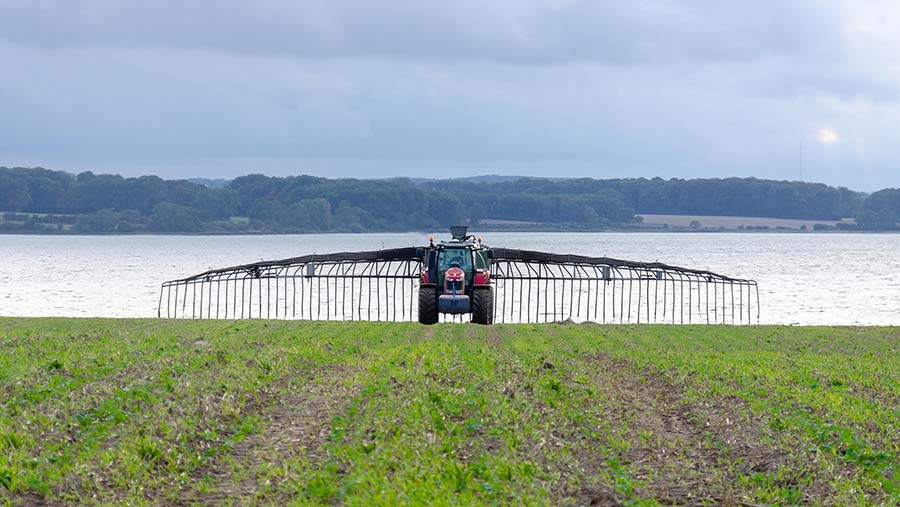Project assesses recovery of fert nutrients from farm slurry
 © Harper Adams University
© Harper Adams University University researchers in the UK are testing technology that could help remove and recover phosphorus from cattle slurry.
The treatment technology applies an electrical charge to water as a way of removing suspended solids, and could prove to be a useful tool for on-farm slurry management and adhering to spreading rules.
See also: How a farmer is benefiting from installing slurry separator
The recovered phosphorus could then be used more widely in agriculture and horticulture, creating a new income stream for farmers.
A team at Harper Adams will use the university’s dairy farm to test how the technology, developed by electrochemical company Elentec, can be used to help slurry management.
The maintenance, installation and cost of the filtration system, to make it work in practice for farmers across the UK, will be assessed as part of the project, which will run for 18 months.
The technology has already been used in other industries, including aquaculture.
Benefits
Dr Marie Kirby, senior lecturer at Harper Adams University, said: “There are many potential benefits from slurry, but its application to farmed land is problematic in areas with increased susceptibility to pollution.
“The idea behind this application means, if successful, we can make slurry from a residue product into something which is potentially valuable.”
The technology would generate sustainable fertiliser products from slurry, benefiting the environment both through changes to slurry management and through the replacement of industrially produced fertiliser.
John Bostock, the chief executive of Elentec, said the process, known as electrocoagulation, would turn dairy farm slurry into three products:
- A concentrated, phosphorus-rich sludge for spreading as a fertiliser
- A carbon-rich solids fraction for soil improvement and carbon sequestration
- A phosphorus-reduced liquor from which nitrogen can be harvested, to be accomplished as a follow-on project.
He added that the resulting “grey water” could be reused safely, such as for irrigation.
Harper Adams will carry out grass crop trials of the treated slurry using both glasshouse and field experiments.
The university, Elentec and commercial partner Merigan Ltd have been awarded almost £250,000 of funding by Innovate UK and Defra.
Mike Theodorou, project manager at Merigan and emeritus professor at Harper Adams, said farmers would be consulted on how best to integrate the technology with existing slurry handling facilities.
